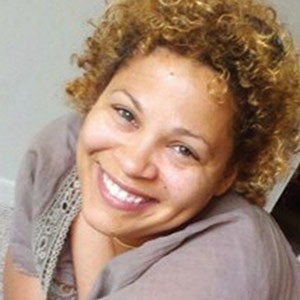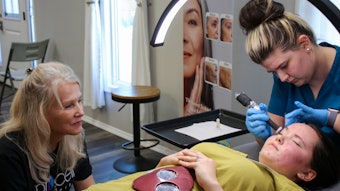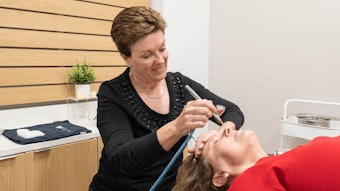
How often has this happened to you: You decide to hire because you need some help, but you quickly realize there isn’t time to train. Or even worse, you didn’t take the time to interview correctly, and you’ve accidently hired a difficult employee who is not trainable.
One of the more taxing aspects of being a spa owner or manager is finding and retaining good employees. This can seem like a daunting, time-consuming task, but your spa’s success greatly relies on the skills of your employees. Their talent, attitude and work ethic will influence every aspect of the business from client retention to bottom line, so you will need to choose your team members and train them strategically.
Rely on the Professionals
The first thing you need to access is help from business professionals in the spa industry. You do not have to reinvent the wheel, and not choosing the paved road can be a costly business mistake.
Experience 101 could be one of the most difficult and intense courses you might ever take. Take advantage of others’ hard-earned advice when you have the opportunity. You cannot do it all.
Hiring professionals who are experts at what they do creates a culture of success and a standard of excellence. Here are a few examples of experts in the spa industry, and how they can help the esthetician and spa.
Spa business consultant. This professional assists with hiring employees, ordering spa products and equipment, and deciding on themes, logos, menu offerings and more.
Spa marketing consultant. Often employed short-term near a spa’s opening, the marketing consultant is key to making the spa visible in an increasingly crowded market.
Educator. This individual will train staff so there is a consistent level of service in the treatments, and products are applied in the right way. They can be independent professionals or allied with product vendors.
A good place to seek out spa experts is usually word of mouth, spa associations, online websites, industry events or trade shows and conferences, where you can choose from a wide variety of classes and workshops from expert beauty consultants.
Business Plan for Performance
Being able to measure your spa staff’s performance requires established business goals and metrics. These can be crafted with a business plan. A business plan includes four key components: finances, operations, sales/marketing and leadership.
Financial plan. A financial plan maps out financial projections for the business, as well as other key information such as compensation and benefits, product cost of goods and cash flow. This plan will have the break-even point is for the business. It will also have information, such as how much business each spa professional must do per day for the spa to earn a profit.
It is often said in business that if you don’t know your numbers, you are in the red. These numbers are easy to keep track of once you figure out what your magic number will be.
Operations plan. An operations plan gives the owner the details of how many services should be offered in each treatment room. It will also determine the average cost per service ticket versus total capacity divided by hours of operation and number of shifts the spa plans on incorporating. Lastly, it will determine the spa’s pricing structure. This all shakes out to a simple equation when the legwork has been done in advance.
Sales/marketing plan. The sales and marketing plan will determine how the spa gets new clients, keeps them and generates referrals from them.
Leadership plan. The leadership plan gives detailed particulars on how the spa owner will successfully assemble a high-performance spa team.
Excel at Education
Every skin care professional needs to invest in themselves and their team, but the culture of the spa industry is not always focused on continuous learning. There are many spas that do not invest in their employees, either because it is not one of their goals or it is not in their budget. Education will allow you to develop the expertise needed to provide world-class skin care treatments. The most common mistake spa owners and estheticians make is working without a plan for education. With an education plan, it is easier to step into the role of business leader that will gain your team’s trust. Your plan should include some of these details below.
Think outside your business. Devise a plan that goes outside the box of your business. It’s hard to make an objective decision about what should happen daily when you are working in several roles within the spa.
Use experience. Use your experience and the experience of your team to make the decisions.
Exceed state lines. Have a plan for education that exceeds the state requirement and meets your mission for an expert staff.
Go to the aforementioned educators to obtain this education. Recognized accredition for skin care technicians include National Coalition of Estheticians, Manufacturers/Distributors & Associations (NCEA) at a national level and CIDESCO and ITEC certifications on an international level.
Seek Personal Development
If you hire recently licensed estheticians, they will turn to you for mentorship as they develop personally. In an ideal world, beauty schools would invest in personal development of their students after graduation, but that relationship to the student usually ends with a license.
You must help this esthetician recognize what their education has provided them with, and segments where they could seek growth. Help them realize their personal talents and develop those skills to benefit both the employee and your spa.
If you are bogged down with the daily tasks of the spa and unable to serve as a mentor, source spa experts, or consultants to help guide your employee’s journey. Also, encourage them to join spa industry associations and become advocates for their profession.
Look Beyond the $$
The expert level of the staff should not be based on sales and bookings, which can be imbalanced. A new esthetician can sell $6,000 a month in retail sales, but that does not make them a skin care expert. Rather, it makes her a great sales person. This is a great skill that should be acknowledged and rewarded, but make sure you commend expertise where it is warranted.
Experts know ingredients—not just the product lines they carry—and they have treated hundreds if not thousands of results-driven skin care cases.
Own the Knowledge
Although product manufacturers definitely have a great place in the industry, especially with their training, this vehicle should merely be a choice in aiding the results-oriented outcome. The knowledge about products and ingredients should lay within the spa professional, not a product line.
The product knowledge of all staff should be strong when working with clients to recommend products and services, or the recommendations shouldn’t take place. Estheticians should be able to read any ingredient panel to decide what product the client will need during consultation. Ultimately, it will be up to the owner to implement ingredient and product expertise into her business model to increase the sale of products and services. Expose yourself and your team to a depth of knowledge on cosmetic ingredients and physiology to elevate your level to expert.











